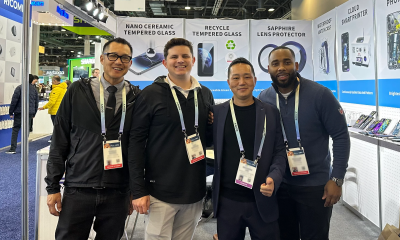Technology
US agency orders Grindr’s Chinese owners to sell,


Image: alexander pohl/NurPhoto via Getty Images
Grindr is about to come under new ownership, but not by choice.
The United States agency that reviews foreign investments in US companies, the Committee on Foreign Investment in the United States (CFIUS), has told Grindr’s Chinese owners, Beijing Kunlun Tech Co Ltd, that it must divest its ownership of Grindr, according to Reuters. Kunlun has reportedly already begun the sale process by soliciting interested investors and competitors.
The CFIUS did not state a reason for this order. But in recent years, CFIUS has been focused on privacy concerns and how foreign companies would treat personal data. U.S. senators Edward Markey and Richard Blumenthal also sent a letter to Kunlun asking how it would protect users’ privacy after the firm acquired Grindr in 2016.
Ordinarily, when a foreign company wishes to invest in a US entity, the CFIUS should conduct a sale review process. The process is voluntary, and Kunlun bypassed it at the time of the sale. However, the order to sell is a consequence of Kunlun not getting the thumbs up from the US from the outset. Still, a mandate like this is “rare,” according to Reuters.
Chinese investment in United States firms rose dramatically between 2010 and 2015, reaching a peak of nearly $10 billion in 2015. According to a 2018 report from Politico, the strategy of acquiring American companies is part of China’s larger “Made in China 2025” initiative, which seeks to make China a hub of manufacturing — which includes IP — and not just assembly.
The CFIUS was reportedly ill-equipped to proactively review and regulate these investments. Now, Chinese firms have stakes in recognizable companies like Uber and Airbnb, as well as scores of hardware and software companies responsible for handling Americans’ personal data.
China’s manufacturing ambitions have alarmed United States officials, particularly in the Trump administration. Concerns about China’s ability to obtain IP and compete with America have fueled Trump’s trade war, as well as growing enmity between the US government and Chinese tech firms such as Huawei and ZTE. IP theft and privacy concerns have been at the center of these battles, but a desire to prevent China from becoming a leader in big money frontiers, like 5G infrastructure, colors the background.
Since the CFIUS did not give a reason for its Grindr order, we can’t say whether this instance had anything to do with the climate of competition between the US and China in tech. But apparently, the CFIUS is coming around to fulfilling its duties around tech acquisitions that it had previously let slide.

-

 Business6 days ago
Business6 days agoLangdock raises $3M with General Catalyst to help businesses avoid vendor lock-in with LLMs
-

 Entertainment5 days ago
Entertainment5 days agoWhat Robert Durst did: Everything to know ahead of ‘The Jinx: Part 2’
-

 Entertainment5 days ago
Entertainment5 days agoThis nova is on the verge of exploding. You could see it any day now.
-

 Business5 days ago
Business5 days agoIndia’s election overshadowed by the rise of online misinformation
-

 Business4 days ago
Business4 days agoThis camera trades pictures for AI poetry
-

 Business5 days ago
Business5 days agoCesiumAstro claims former exec spilled trade secrets to upstart competitor AnySignal
-

 Business7 days ago
Business7 days agoScreen Skinz raises $1.5 million seed to create custom screen protectors
-

 Entertainment7 days ago
Entertainment7 days agoDating culture has become selfish. How do we fix it?























